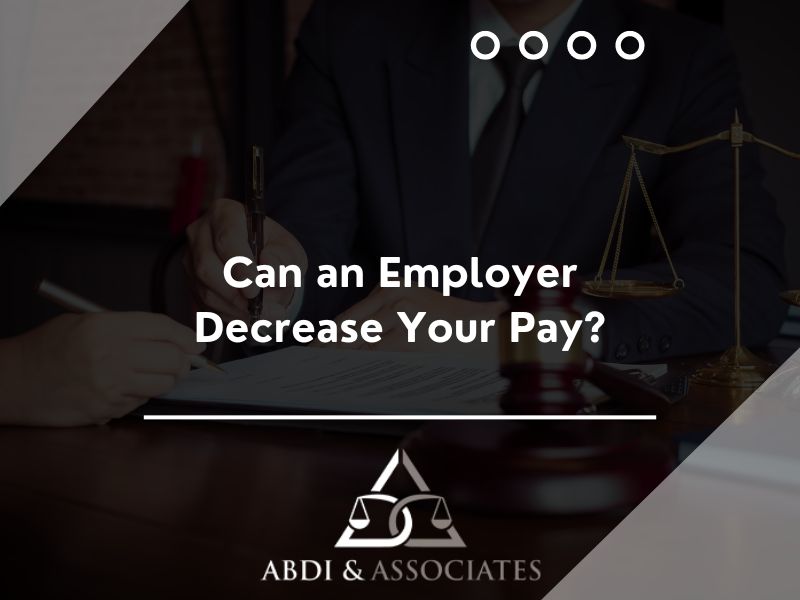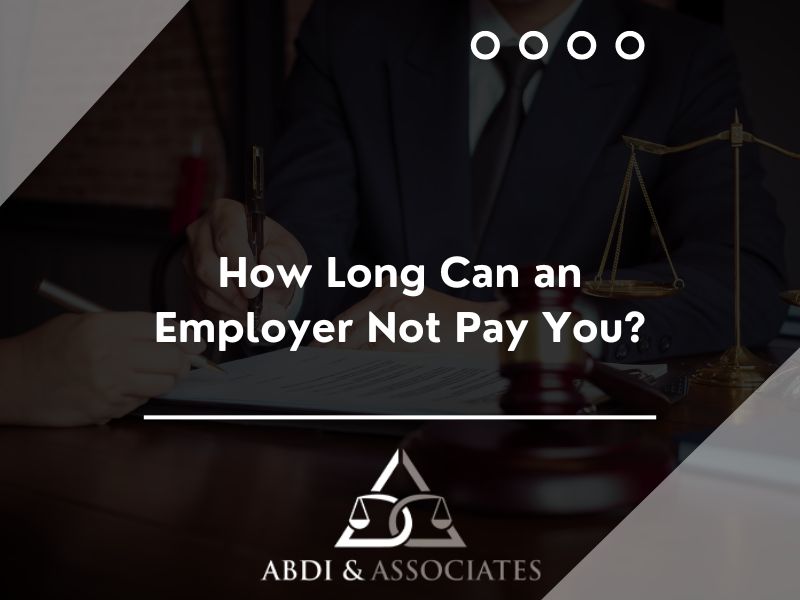
Workers may experience various difficulties in the ever-changing complicated job setting, particularly employer retaliation. California, which is renowned for its strict rules protecting employees, has put forward particular regulations to deal with retaliation by employers.
Moreover, workers in California ought to be aware of their liberties and the significance of obtaining legal counsel given that employer retaliation is indeed a grave matter that can arise in the workplace. As you read on, we seek to give a thorough explanation of employer retaliation in California, stressing its effects and illustrating why hiring an employer retaliation lawyer from Abdi & Associates can be extremely important for those who have been affected.
Understanding Employer Retaliation
Retaliation by an employer against a worker who asserts their constitutional liberties or participates in protected activities is called employer retaliation. These steps are frequently conducted as an outcome of the worker’s complaint, report, or involvement in actions like whistleblowing, submitting a complaint to a government agency, or defending their rights under the law.
The most prevalent allegation of discrimination and a particularly typical finding of discrimination in situations involving the government sector is retaliation.
The Equal Employment Opportunity (EEO) regulations forbid punishing job seekers or workers for claiming their right to be protected against harassment and other forms of employment discrimination. The term “protected activity” indicates exercising these EEO rights, and it may come in various forms.
Types of Employer Retaliation
It is prohibited to penalize prospective employees or workers for:
- submission of, or participation as a witness in, an EEO charge, complaint, inquiry, or lawsuit
- bringing up workplace discrimination, particularly harassment, with a boss or supervisor
- responding to inquiries made by an employer looking into allegations of harassment
- refusing to carry out instructions that might discriminate
- putting up a fight against sexual advances or protecting others
- seeking a religious practice or a disability adjustment
- inquiring about salaries from bosses or coworkers to disclose probable discriminatory pay
- complaining about pursuing a job in a hostile work atmosphere
Retaliation against someone who participates in a complaint process is never permitted. Even though the worker did not utilize legal terms to characterize their actions, they remained safeguarded as long as they were motivated by a reasonable suspicion that something at work would be against EEO regulations.
The Legal Framework in California
California offers strong legal protection from workplace reprisals through several legislations and regulations. The California Fair Employment and Housing Act (FEHA), the California Whistleblower Protection Act, and provisions under the Labor Code are important pieces of legislation. These laws seek to protect workers’ rights and provide an equitable and just workplace.
Methods to Show Retaliation in a Workplace
Although legislation against workplace retaliation is clear about what constitutes retaliation, it is frequently challenging to demonstrate that retaliation has actually taken place. This is mainly due to retaliatory actions that are frequently subtle, making them more difficult to spot.
Workers typically have to provide evidence of the following when trying to prove retaliation:
- They engaged in a protected activity.
- They were injured.
- The unfavorable employment action played a significant role in the harm.
- The adverse employment action was brought about in large part due to engagement in the protected activity; and
- They were subjected to a negative employment decision by the employer.
Whenever a worker suspects they were the victim of retaliation, the employer has to prove that there was a valid, non-retaliatory rationale for that adverse employment decision.
What if it is discovered that your employer did nothing of the sort? It’s vital to remember that the legislation’s priority is to hinder employers from restricting their employees’ ability to advocate their rights. Therefore, it makes no difference if the employer was acting unlawfully prior to receiving a complaint. You remain entitled to damages even if you had an honest suspicion that you were carrying out a protected activity at the time the retaliation occurred.
Importance of Hiring a Lawyer
Workers who suffer retaliation from their employer ought to seek legal counsel as a way to safeguard their rights and pursue the proper legal remedies. The following are some advantages of hiring an employment law professional like folks at Abdi & Associates:
- Expertise: California labor legislation and rules are a specialty of employment lawyers who focus on employer retaliation lawsuits. They can evaluate the circumstances, establish whether a claim has merit, and assist employees with the court procedure.
- Legal Strategy: A skilled attorney can create a compelling legal strategy that is adapted to the unique circumstances of every case. To get the best result for their client, they can find pertinent laws, gather proof, and put together a strong argument.
- Representation: Having a knowledgeable attorney on their side ensures that employees are heard and represented throughout the court case. This guarantees that their liberties are upheld and that they have a zealous ally on their side.
How Abdi & Associates Can Help
Abdi & Associates is a prominent employment law practice in California. We have an extensive record of success in employer retaliation lawsuits owing to a team of skilled attorneys committed to defending employee rights. We are a trustworthy choice for those dealing with workplace retaliation due to our knowledge and dedication to those we serve.
Frequently Asked Questions
What is the California employer retaliation claim statute of limitations?
A complaint asserting retaliation in contravention of the statutes under the Labor Commissioner’s jurisdiction needs to be submitted within six (6) months of the supposed retaliatory action. However, it is highly advised to speak with an employment attorney swiftly to learn the precise deadlines that apply to your case.
Can I make a retaliation claim even though I haven’t been fired?
Yes, even if there hasn’t been a termination, charges of employer retaliation may still be made. Demotion, harassment, or wage reduction are just a few examples of the various ways retaliation manifests. If you’re unsure about whether the actions committed against you count as retaliation, speaking with an employment lawyer may help.
Can I afford Abdi & Associates’ legal counsel?
The different fee structures offered by Abdi & Associates include contingency fees, where clients only incur costs if we win your case. Subsequently, we offer free initial consultations to go through your case and choose the ideal course of action.
How long does it normally take to resolve an employer retaliation case?
Several variables, particularly the intricacy of the case and whether it is settled by negotiation, mediation, or litigation, can affect how quickly an employer retaliation case is concluded. Based on the particulars of your case, an employment lawyer can offer a more precise estimate.
Contact us today for your employer retaliation case
Retaliation by an employer in California puts workers in a difficult situation. For people in such scenarios, it is crucial to comprehend what is meant by employer retaliation, recognize its various forms, and be aware of the legal safeguards present. The knowledge and advocacy required to handle the complexities of employer retaliation cases may be obtained by engaging a lawyer from Abdi & Associates. This will guarantee that the rights of workers are upheld and that fairness is sought.
Call us as quickly as you’re able at (888) 772-2529 or contact us through our secure form to arrange a free case evaluation with one of our attorneys. We aim to be there for you and guide you in any manner possible.
Navigation
Related Posts


Can an Employer Decrease Your Pay?
Continue Reading
